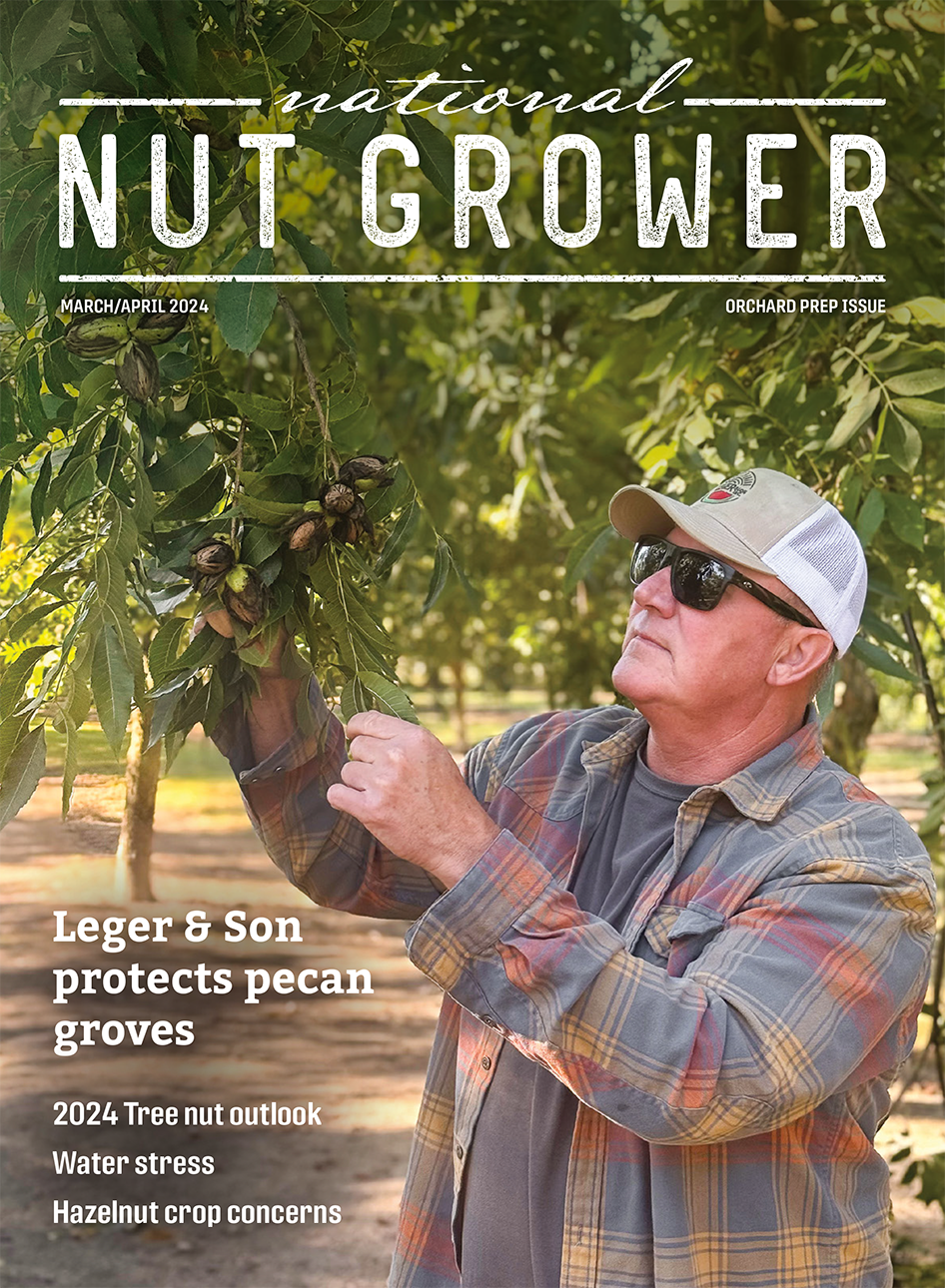
Jan 29, 2021Have A Plant: The Plant-Forward Eating Guide touted by walnut group
The California Walnut Board, in partnership with the Produce for Better Health Foundation (PBH), announced Jan. 25 the launch of Have Plant: The Plant-Forward Eating Guide.
While global health experts agree that eating more plants is the single most important action people can take to enjoy happier, healthier lives, nine out of 10 Americans aren’t eating enough fruits and vegetables.i California Walnuts and PBH created the guide and corresponding tools based on years of evidence to provide food and nutrition professionals with new resources to motivate more Americans to enjoy more fruits and vegetables, along with other deliciously nutritious plant foods, more often.
The Have A Plant: The Plant-Forward Eating Guide takes a novel approach to solving the long-standing plant consumption gap by providing the industry with a framework to create lasting change: the PBH KNOW-FEEL-DO Behavioral Framework.
“Our research tells us that simply educating on the facts doesn’t move the needle for healthy eating. Most Americans KNOW that eating plant foods, like fruits and vegetables, promotes health but that doesn’t always translate to action. To bridge consumers’ intention-action gap, we must inspire Americans with EASY ideas that makes the DOing simple, so they FEEL empowered and excited about how plant foods boost their health and happiness and add even more flavor to their favorite meals and snacks,” says Wendy Reinhardt Kapsak, MS, RDN, President and CEO, PBH. “Have A Plant: The Plant Forward Eating Guide and PBH’s KNOW-FEEL-DO Behavioral Framework do just that – making it easy and more enjoyable to eat more plants, more often.”
In addition to the framework, the guide puts forward definitions for the industry to adopt when it comes to “plant-based” and “plant-forward.” With consumers increasingly bombarded with conflicting health messages and maddening diet noise, universal industry standard terms provide a common ground – ultimately helping cut through the confusion and encourage a style of eating that prioritizes plants without excluding other food groups.
Plant-forward eating, which includes the consumption of fruits and vegetables at recommended levels and higher intake of nuts such as walnuts, has been associated with a myriad of health benefits including a reduced risk of all causes of mortality, including cardiovascular disease (CVD) and cancer. Research shows that eating more plants may also help improve gut health, which is the starting place for many other benefits, such as a healthy immune system and overall health.
One plant not to be overlooked is the walnut. A one-ounce handful is a powerhouse of important nutrients for optimum health, including protein (4g), fiber (2g) and a good source of magnesium (45mg). Heart-healthy walnuts are also the only nut significantly high in essential plant-based omega-3 ALA, an essential plant-based fatty acid that must come from food, with 2.5 grams per ounce.
“Walnuts aren’t always thought of as a plant but play an important role in a plant-forward diet, not only with their unique nutritional profile but also the satisfying taste and versatility they bring to any meal or snack,” says Michelle Connelly, Executive Director at the California Walnut Board. “The California Walnut Board developed the Have A Plant: The Plant-Forward Eating Guidein partnership with PBH to help cut through the confusion on this topic and provide a useful resource for professionals and consumers when it comes to plant-forward eating. Because at the end the day, eating more plants should be practical, easy and enjoyable.”
The Have A Plant®: The Plant-Forward Eating Guide is available (fruitsandveggies.org/plant-forward-eating-guide) for industry and health professionals and includes:
- Definitions and infographics for use when talking with consumers;
- Implications and opportunities for plant-forward menus at restaurants, including culinary and tasting experiences;
- Trends and insights to showcase plant-forward shopper solutions in retail; and
- A digital toolkit, which includes recipes, infographics and a social media playbook for professionals.
For more plant-forward inspiration, visit www.walnuts.org/plant-forward-eating and www.fruitsandveggies.org.
Produce for Better Health Foundation (PBH), a nonprofit 501(c)(3), is the only national organization dedicated to helping consumers live happier, healthier lives by eating more fruits and vegetables, including fresh, frozen, canned, dried and 100% juice, every single day.
Since 1991, PBH has invested decades into developing trended insights on attitudes towards all forms of fruit and vegetable consumption, in addition to campaigns and partnerships with government, food industry stakeholders, health professionals and other thought leaders to collaborate, facilitate and advocate for increased intake. Campaigns included first, the 5-A-Day program, and then, the Fruits & Veggies – More Matters public health initiative.
While five fruits and vegetables each day is great advice, and more will always matter, PBH’s new behavior-based call-to-action is Have A Plant. Rooted in behavioral science, PBH’s transformative Have A Plant movement is an invitation that will inspire people with compelling reasons to believe in the powerful role fruits and vegetables can play to create happy, healthy and active lives.
PBH is also responsible for the Lead The Change Movement – a multi-sector, multi-year initiative designed to maximize the power of PBH’s unique thought leadership position, widespread influencer network, credible scientific and market research, and, most importantly, its innovative members and partners, to lead a call-to-action for addressing the global fruit and vegetable consumption crisis. The initiative includes research, thought leadership and communication platforms to ensure the Movement speaks with One Purpose, One Voice and One Call-to-Action. For more information about the Lead The Change Movement visit: www.fruitsandveggies.org/lead-the-change.
The California Walnut Board was established in 1948 to represent the walnut growers and handlers of California. The CWB is funded by mandatory assessments of the handlers. The CWB is governed by a Federal Walnut Marketing Order. The CWB promotes usage of walnuts in the United States through publicity and educational programs. The CWB also provides funding for walnut production, food safety and post-harvest research.







